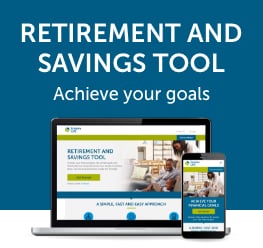
What's the biggest cheque you or your estate will ever write? When do you think that might happen?
For many people, the biggest cheque they will ever send to the government will be for the money owed on their death. Any unpaid or accrued income taxes, taxes triggered on the full value of registered retirement savings plans or registered retirement income funds, capital gains on appreciated property including rental property and the cottage, investments, the value of any interest in a business and any other holdings will get added together upon your death to create a massive tax bill.
You might ask, where will the money come from to pay my tax liabilities? Or what about my wishes or the expectations of my family to have my estate assets pass to them? Unfortunately, your family may have to stand in line to see what's left after the government takes its share.
Now, there are some breaks you can get. Some assets can pass to your spouse on a rollover basis, delaying the time when taxes will be triggered. Your estate and your heirs won't be able to avoid taxes due forever; taxes owing will simply be deferred until your heirs dispose of those assets or they pass away.
Simply naming beneficiaries for your life insurance or registered savings plans may avoid probate fees owed by your estate, as those assets will not pass through your will and will not form part of your estate. But these assets may still be subject to a claim by the government for income taxes, which would be payable by your estate.
What are some options you might consider discussing with your financial advisor?
You can sacrifice some of your hard earned money, investments and assets by liquidating them and using the proceeds to pay the taxes at death. Those sales may trigger administration costs and fees which are probably not in your plan right now. Alternatively, you can buy life insurance to pay the tax bill when you pass away. This will protect your assets, preserve your dreams, and meet the expectations of heirs and dependents.
Some people view life insurance as a lousy investment. If you feel that way, why not have this as part of your portfolio and send your lousy investment to the government on your death. Keep your good investments for charities, children and partners in life.
What about the money needed to pay for life insurance? That can come from the returns you earn on your non registered investments, perhaps from your current cash flow or even from heirs who are concerned about protecting a potential inheritance. You don't know when that tax bill will be triggered. The older you get, the sooner that bill will arrive. Take the worry about paying for it away.



